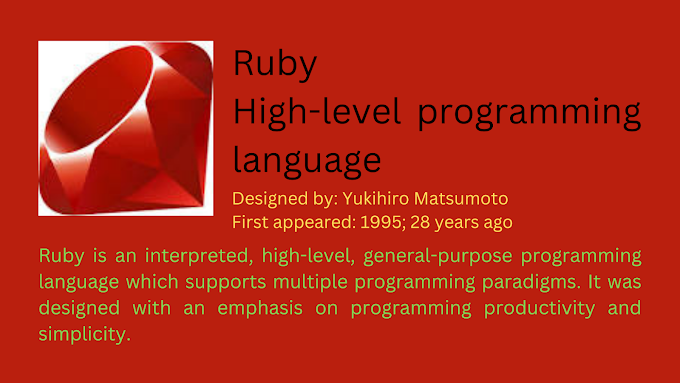Introduction
Definition Of Quantum Computing
Quantum computing is an emerging field of technology that harnesses the principles of quantum mechanics to perform computational tasks. Unlike classical computing, which relies on binary bits to represent and process information, quantum computing utilizes quantum bits, or qubits, to store and manipulate data. These qubits can exist in a superposition of states, allowing quantum computers to perform complex calculations much faster than classical computers.

Brief History And Development
The concept of quantum computing was first introduced by physicist Richard Feynman in 1982, who proposed that quantum systems could offer computational advantages over classical systems. In the years that followed, researchers made significant strides in understanding and developing the principles of quantum computing. Breakthroughs, such as Peter Shor's algorithm for factoring large numbers, sparked widespread interest in the field and set the stage for further advancements.
Importance And Potential Applications
Quantum computing has the potential to revolutionize various fields by solving problems that are currently intractable for classical computers. It holds promise in areas such as cryptography, optimization, drug discovery, and machine learning. The ability to perform complex calculations at an unprecedented speed opens up new possibilities for scientific research, innovation, and technological advancement.
Basics Of Quantum Computing
Explanation Of Quantum Bits (Qubits)
Qubits are the fundamental units of information in quantum computing. Unlike classical bits, which can only be in a state of 0 or 1, qubits can exist in a superposition of both states simultaneously. This unique property allows quantum computers to process vast amounts of information in parallel, increasing computational power exponentially.
Comparison With Classical Bits
Classical bits, represented by zeros and ones, can be thought of as the building blocks of classical computing. They operate according to the principles of classical physics and can only represent one value at a time. In contrast, qubits exploit quantum properties to represent multiple values simultaneously, enabling parallel processing and more efficient computations.
Quantum Superposition And Entanglement
Quantum superposition is a phenomenon in which qubits can exist in a combination of states. This allows quantum computers to consider all possible solutions to a problem simultaneously. Entanglement is another crucial concept in quantum computing, where qubits become correlated in a way that the state of one qubit depends on the state of another, regardless of their physical separation. This property enables the creation of powerful algorithms and computations.
Quantum Computing Principles
Quantum Gates And Operations
Quantum gates are analogous to the logic gates in classical computing. They are used to manipulate qubits, allowing for operations such as superposition, entanglement, and information extraction. These gates, such as the Hadamard gate, CNOT gate, and Pauli gates, play a vital role in implementing quantum algorithms and performing computations.
Quantum Algorithms
Quantum algorithms are specific instructions designed for quantum computers to solve complex problems efficiently. Examples of notable quantum algorithms include Shor's algorithm, which can factor large numbers exponentially faster than classical algorithms, and Grover's algorithm, which provides a quadratic speedup for searching unsorted databases.
Quantum Error Correction
Quantum systems are highly susceptible to errors caused by environmental disturbances and noise. Quantum error correction techniques aim to protect and preserve the delicate quantum information from these errors. By employing redundant encoding and error-detecting codes, quantum error correction ensures the reliability and stability of quantum computations.
Current State Of Quantum Computing
Overview Of Existing Quantum Computers
Although still in its early stages, quantum computing has seen significant progress. Several companies and research institutions have developed rudimentary quantum computers with varying numbers of qubits. These computers, such as those built by IBM, Google, and Rigetti, demonstrate the feasibility of quantum computing and enable researchers to explore its potential applications.
Challenges And Limitations
Quantum computing faces numerous challenges and limitations. One major hurdle is the fragile nature of qubits, which are highly susceptible to decoherence and noise. Maintaining qubits' coherence for an extended period remains a considerable challenge. Additionally, scaling up quantum systems to a large number of qubits while minimizing errors and improving computational power is an ongoing area of research.
Quantum Supremacy And Recent Milestones
Quantum supremacy refers to the point at which a quantum computer can perform a task that is beyond the reach of classical computers. In 2019, Google claimed to have achieved quantum supremacy by demonstrating a quantum computer capable of solving a specific problem faster than any classical computer. This milestone sparked excitement and highlighted the potential of quantum computing.
Potential Applications Of Quantum Computing
Cryptography And Code-Breaking
Quantum computers pose both opportunities and challenges for cryptography. While they have the potential to break current encryption methods, they can also enable the development of quantum-resistant cryptographic algorithms. Quantum key distribution offers secure communication channels, and post-quantum cryptography research aims to develop encryption methods that can withstand attacks from quantum computers.
Optimization And Simulations
Quantum computing holds great promise for solving optimization problems, which are prevalent in various fields, including finance, logistics, and scheduling. Quantum simulations allow researchers to model and understand complex quantum systems more accurately. This capability has implications for studying chemical reactions, material properties, and the behavior of biological molecules.
Drug Discovery And Material Science
Quantum computing can expedite the discovery of new drugs by simulating molecular interactions and properties more efficiently. It enables researchers to analyze complex biological systems, design more effective drugs, and accelerate the development of personalized medicine. Additionally, quantum simulations can aid in developing novel materials with desired properties for industries such as aerospace, energy, and electronics.
Machine Learning And Ai
Quantum computing has the potential to enhance machine learning algorithms and accelerate AI processes. Quantum machine learning techniques can provide more accurate predictions and insights by leveraging quantum algorithms. Quantum-inspired algorithms are being explored to solve machine learning problems efficiently, paving the way for advancements in pattern recognition, optimization, and data analysis.
Impact Of Quantum Computing
Disruption Of Current Industries
The advent of practical quantum computing could disrupt various industries. Sectors such as finance, logistics, pharmaceuticals, and cybersecurity may experience significant transformations due to the computational power and new capabilities offered by quantum computers. Companies and organizations that embrace quantum computing early on may gain a competitive advantage in solving complex problems and optimizing processes.
Ethical Considerations And Privacy Concerns
Quantum computing raises ethical considerations and privacy concerns. The ability to break current encryption methods raises questions about data security and privacy. It also highlights the need for developing ethical frameworks and policies to address the potential risks associated with powerful quantum computing technologies.
National Security Implications
Quantum computing has implications for national security and defense. The ability to break cryptographic codes used by governments and organizations can compromise sensitive information. Therefore, investing in quantum technologies and ensuring a balance between defensive and offensive capabilities is crucial for maintaining national security in the age of quantum computing.
Future Prospects And Challenges
Scalability And Practical Implementation
One of the major challenges in quantum computing is achieving scalability. Building large-scale, error-corrected quantum computers capable of solving real-world problems remains a significant hurdle. Researchers are exploring various approaches, such as topological qubits and error correction techniques, to overcome scalability challenges and pave the way for practical implementation.
Quantum Internet And Communication
The development of a quantum internet is an area of active research. Quantum communication protocols, such as quantum key distribution, hold the promise of secure and un
breakable communication channels. Building a quantum internet infrastructure that connects quantum computers and allows for secure transmission of quantum information poses technical and engineering challenges.
Collaboration And Investment In Quantum Research
The progress and realization of quantum computing require collaboration among researchers, industries, and governments. Investment in quantum research, development of talent, and international cooperation are vital for advancing the field. Public-private partnerships and government initiatives can foster innovation, support breakthroughs, and accelerate the practical implementation of quantum technologies.
Conclusion
Recap Of Key Points
Quantum computing harnesses the principles of quantum mechanics to revolutionize computational power. Qubits, quantum gates, and algorithms enable quantum computers to perform complex calculations at an unprecedented speed. Quantum computing has the potential to impact various fields, including cryptography, optimization, drug discovery, and machine learning.
Importance Of Continued Research And Development
Continued research and development in quantum computing are crucial to overcome challenges, improve qubit coherence, and scale up quantum systems. Advancements in hardware, error correction, and algorithm design are necessary for practical implementation and widespread adoption of quantum technologies.
Potential Transformative Impact On Various Fields
Quantum computing has the potential to transform industries, disrupt traditional approaches, and solve problems that are currently intractable. From optimizing complex processes to revolutionizing drug discovery and enhancing AI capabilities, the impact of quantum computing can be far-reaching, opening up new frontiers of scientific discovery and technological innovation.



0 Comments
Welcome! Please Comment Without Any Hesitation.
Thank You